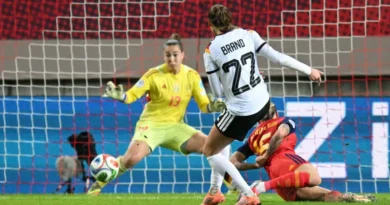Marc-Andre ter Stegen injury sparks Barcelona upheaval
The 2025 summer has brought a storm of questions and emotions around Marc-Andre ter Stegen injury and recovery, casting a long shadow over both Barcelona and the German national team. For years, ter Stegen has been the ever-reliable figure between the posts at Camp Nou, donning the captain’s armband and commanding respect from teammates and fans alike. Now, following another back surgery and a swirling debate on his status, the human drama and club politics make this a defining chapter in Barcelona’s complex recent history.
Barcelona’s delicate balance: injury, registration, and leadership
In late July, word spread quickly: Marc-Andre ter Stegen had undergone surgery in Bordeaux, France, to finally quell the persistent back pain that plagued his 2024/2025 season. The operation, supervised by Dr. Amelie Leglise, was successful, but the controversy was only beginning. Initially, ter Stegen himself stated he expected a three-month absence, perhaps a mark of his optimism and competitive spirit. However, reports from Spain soon indicated the official medical report—crucial for the club’s dealings with La Liga—would state a four-month absence. This subtle difference had far-reaching consequences far beyond the pitch.
Barcelona once again found themselves wrestling with tight salary cap regulations, complicated by a squad in need of renewal and reinforcements. If ter Stegen’s layoff lasted at least four months, the Catalans could activate La Liga’s emergency rule, freeing up 50% of his salary cap hit and enabling the registration of new signing Joan Garcia, brought in from city rivals Espanyol for €25 million. Every detail of ter Stegen’s timeline gained the weight of a financial calculation, not just medical or sporting concern.
The captaincy crisis
Yet the financial wrangling was only the opening act. A debate ignited over whether ter Stegen should remain captain. Club hierarchy reportedly grew frustrated, seeing his three-month prognosis as a calculated attempt to prevent Barcelona from claiming a larger salary cap exemption. Some in management whispered that after months of injury setbacks—and amid the urgent need to make space for new faces—ter Stegen was no longer the ideal leader, and a vote could see him replaced. Hansi Flick, the new manager, stayed above the fray, telling the media that as always, “the team decides the captain,” with the election planned for the coming weeks.
But inside the dressing room, support for ter Stegen was unwavering. Frenkie de Jong declared, “For me, Marc is the team captain, just as he was last season. Marc is a world-class player and has always given his all to the club, so I support Marc a lot, and from what I know, the team as well.” Ferran Torres echoed these sentiments, emphasizing the experience and loyalty that ter Stegen brings. The fissure, then, seemed less about the player’s bond with his teammates and more about a club leadership grasping for flexibility under the salary cap’s relentless pressure.
Navigating the present while eyeing the future
The story becomes still more layered with the arrival of Joan Garcia from Espanyol—a clear signal from Barcelona that they are preparing for a future where ter Stegen may not be their undisputed number one. Joan Garcia, described by de Jong and others as a high-quality shot stopper, adds a new dynamic. Meanwhile, Barca’s management needed ter Stegen’s signature to file the necessary medical documentation with La Liga to activate the salary exemption. Despite internal tension, sources reported the club was confident ter Stegen would cooperate, if only to avoid further disruptions and ensure necessary reinforcements ahead of the fast-approaching Liga opener against Mallorca.
For ter Stegen, the personal stakes could not be higher. Not only his Barcelona future, but also his aspiration to retain Germany’s number one jersey, now comes under the microscope. National team coach Julian Nagelsmann made the conditions plain: “He’s our No. 1 if he’s fit and if he’s No. 1 at his club.” Having fought so hard to claim the German shirt, ter Stegen now faces the dual battle of regaining his health and fending off competition, not just from Garcia at Barcelona, but also from challengers in the German setup. Nagelsmann expects his return by December, eyeing March and June friendlies as pivotal in his assessment for the World Cup squad.
Barcelona’s broader rebuilding and the salary cap labyrinth
The saga of ter Stegen’s injury intersects with broader themes in Barcelona’s evolution. The club is under immense pressure to generate cash, evidenced by the high-profile sale and transfer rumors around vice-captain Ronald Araujo and new sponsorship deals like the one with the Democratic Republic of the Congo (€10-11 million per year). Every potential transfer, every medical report, and every vote for captain is scrutinized through both sporting and financial lenses. Joan Garcia’s acquisition is emblematic of that strategy—primary goalkeeping cover for the post-ter Stegen era and a key piece to registering all signings, including Marcus Rashford and Roony Bardghji, before the season’s first whistle.
The past year has been unkind to Barcelona’s stability between the posts. Last season, ter Stegen missed extensive time with a knee injury, leading to the emergency signing of Wojciech Szczesny, who now also remains in the fold as a veteran backup to Garcia. Every adaptation, every change in the squad reflects the modern game’s reality, where sports medicine, regulatory loopholes, and human relationships weave a story as compelling as anything witnessed on the pitch itself.




